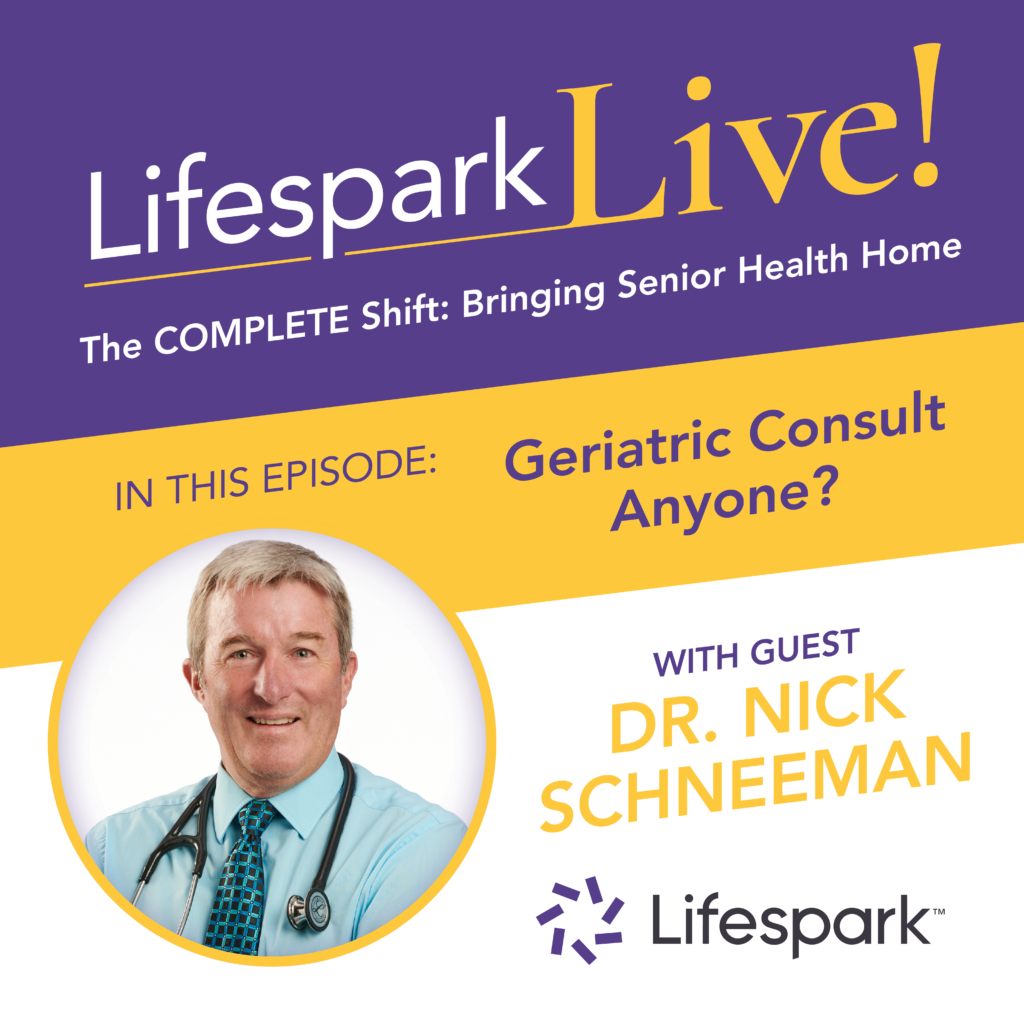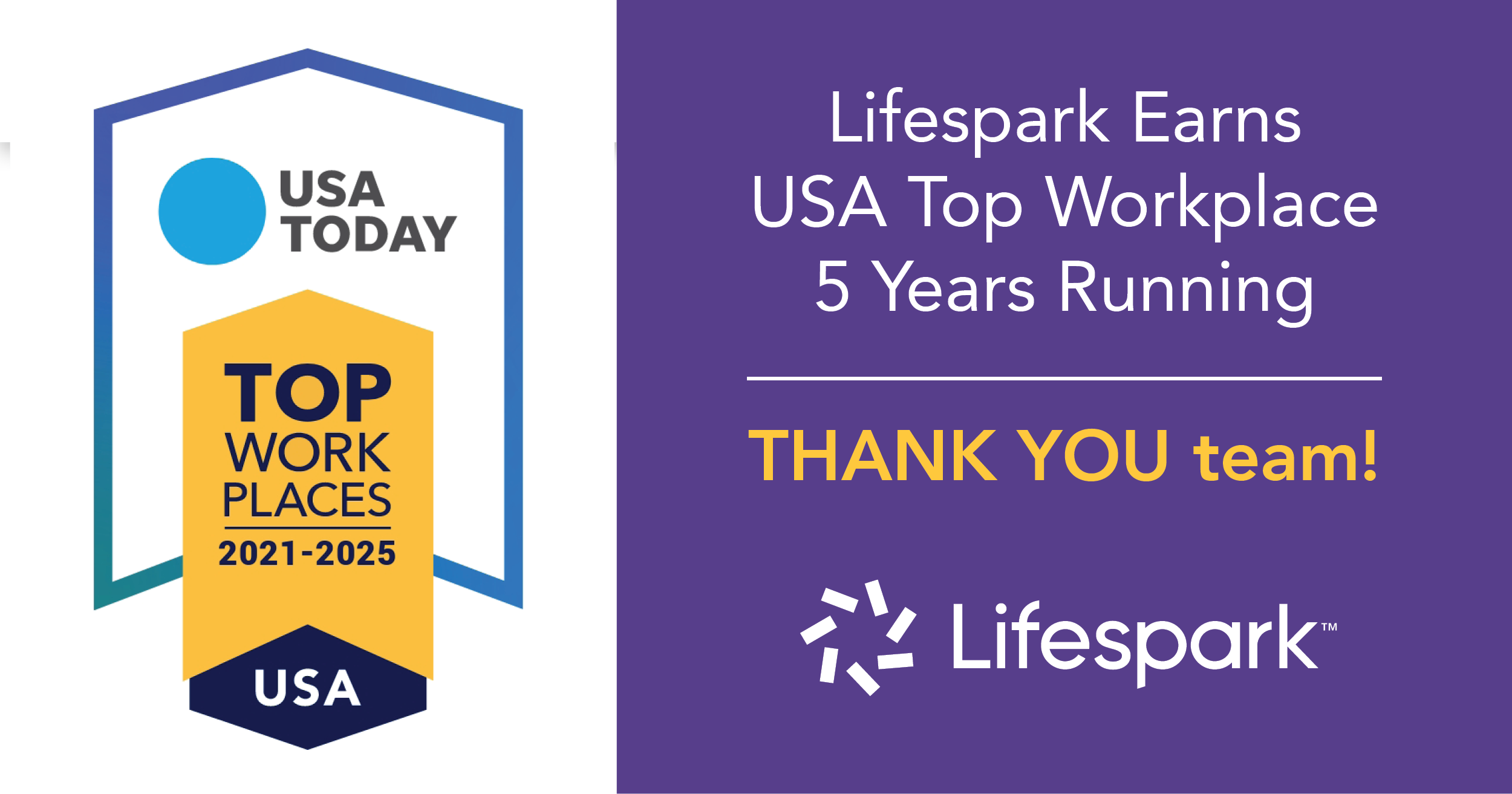
When we think about a geriatric consult there’s an assumption that it’s already part of what primary care delivers when you work with seniors. It’s not —traditional primary care is missing the geriatrics part. The play on this question — Geriatric Consult Anyone? — was meant to create intrigue. The reality is no one asks for them – there’s no access to them.
What it comes down to is the training and expertise to serve an older population in a way that drives better outcomes and significantly decrease hospital admission or ED rates. It’s about building strong relationships with seniors and their families and thinking about the types of referral consults we make when trying to manage seniors’ health problems.
Seniors often use the emergency room as the easy button when crises occur, or symptoms emerge amid progressive chronic illness. Ageist thinking has led us to normalize this experience as just what happens when you age. They often sit in the ER for hours and leave with more questions, a poor experience without their needs being fully served, and a few next steps: follow up with your primary care and a referral for a cardiology, pulmonary, neurology, (fill in the blank) consult for you to make an appointment. And of course, more medications.
As health care professionals we’ve seen it, we care for seniors with more complex needs who are frequent users of the ER and often have a fragmented experience. But is that really because they are more complex or because we’ve let it get that far? Unmanaged care has that effect – asking for a geriatric consult or a Medical Plan Consult as we call it, is one way to stop that cycle.
Lack of Training For Geriatric Consults; Start With a 5-Step Process
In addition to access, is the lack of training on how to do one. Dr. Nick Schneeman Chief Medical Officer at Lifespark, talks about this in Lifespark’s podcast – Geriatric Consult Anyone? It’s rare, Dr. Nick points out, for anyone to provide this level of service to seniors because there’s no training anywhere and access is very limited – just a few besides Lifespark provide them in Minnesota. That’s why in the podcast, Dr. Nick goes into detail on how providers can perform a geriatric consult with a 5-step process to produce personalized high value care plans for people with both acute and chronic needs.
It begins simply with listening. After listening comes trust. Without this trusted foundation, Dr. Nick explains, the best evidence-based clinical recommendations will go unheeded. As a broad overview, the 5-step process for a geriatric consult includes:
- Storytelling
- Summarize what you’ve heard
- Elicit goals of care
- Write an advanced care plan
- Review the chronic care plan
The process ends with gratitude by thanking the senior and their family.
Geriatric Consult In Action
Mary is an 88-year-old woman who survived ovarian cancer with a reoccurrence 10 years ago. Five years ago, she started showing signs of cognitive impairment. She’s been in the hospital multiple times over the past year and now her health is failing. Many within her care circle believe it’s time for hospice which it might be. And then Lifespark gets involved.
Because Mary has a health plan that provides her with Lifespark COMPLETE, Mary gets assigned a Life Manager and a geriatric consult begins. The Lifespark team soon discovers that she has been overtreated with antibiotics inappropriately for a variety of things, has Alzheimer’s though no one has labeled it yet, is sleeping 20+ hours a day, can’t walk and is in a wheelchair, takes 12 different medications, and is struggling along with her husband to stay in their home.
The team co-manages Mary’s care with her other providers while putting Mary in charge of her health experience. Two months after that geriatric consult, Mary is playing bridge and both her and her husband’s lives are so much better. As for her family, they are Lifespark fans.
Human Value of A Geriatric Consult
The biggest takeaway from a geriatric consult is the human value it provides. Mary’s experience is what you get with a geriatric consult – not having one is a huge, missed opportunity for those who work with and provide services for seniors.
In the podcast, Dr. Nick covers in detail how this simple consult impacts clinical outcomes for all involved, to collaboratively tie together all the acute, chronic, and complex issues a senior may be facing in a way that promotes life and health. One tip, asking for a geriatric consult should begin before a crisis hits.
As we think about the question – Geriatric Consult Anyone? – we hope to stir your thinking that when it comes to seniors, the answer to the question shouldn’t be abnormal, it should be the norm. When brought to the table, a geriatric consult ties together all the pieces and players into one cohesive plan to recenter health around the person. Perhaps this is a call to action to get out your pen and paper and write the referral– anyone?
Listen to our podcast to hear more surprising truths about working with seniors and subscribe to The COMPLETE Shift so you don’t miss out on the next one.



